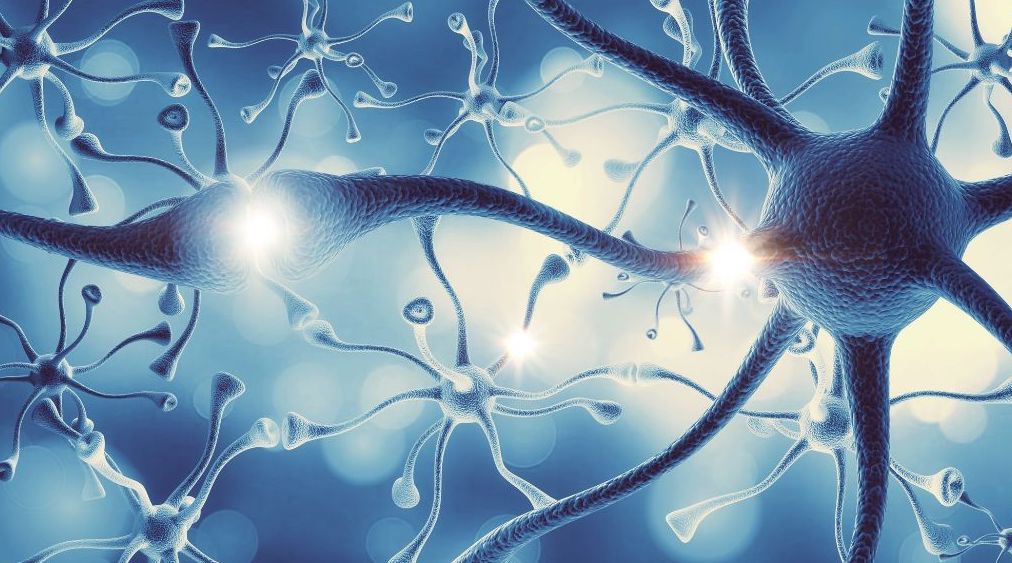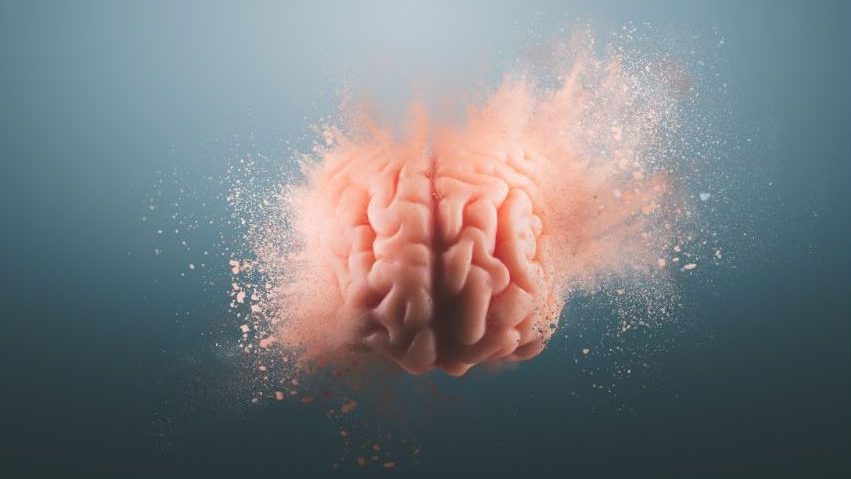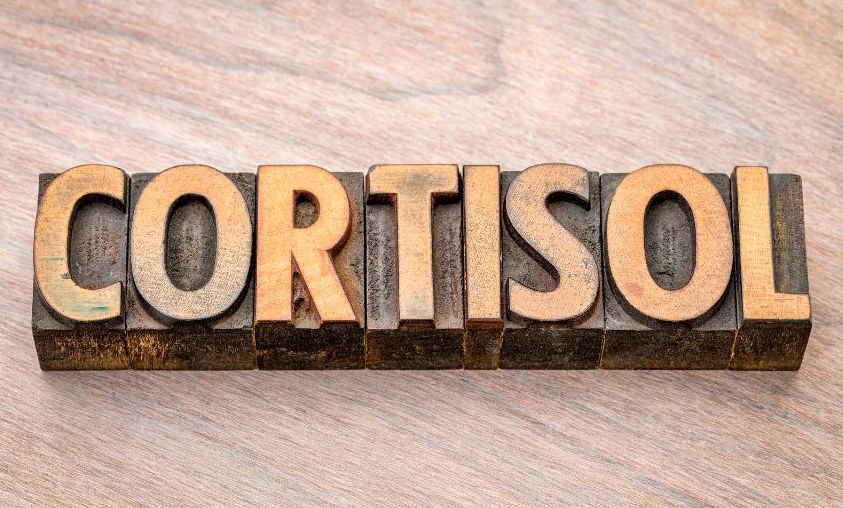What is the nervous system?
Here’s a simplified explanation: Think of the nervous system as a control center for the body, where various processes and functions are controlled and coordinated.

In this post, I will highlight two main functions, and I’ve had the audacity to rename them to make them easier to remember and to incorporate them into our daily lives.
1. The Alarm System

The Sympathetic Nervous System
- This system is known as the “fight or flight” system and is activated in stressful or threatening situations.
- The heart beats faster, breathing increases, and the body mobilizes energy to deal with the threat.
- The body prioritizes certain functions over others. For example, the immune system is lowered because fighting viruses is not the most important thing at this exact moment – we have a lion in front of us and need to survive NOW.
2. The Peace System

The Parasympathetic Nervous System
- This system is activated when we feel safe and at peace; in this state, we allow our bodies to recharge and recover.
- This parasympathetic nervous system slows down the heartbeat, calms our breathing and promotes digestion and the immune system.
- This system makes it possible to feel satisfying emotions such as happiness, love, connection, belonging, etc.
By understanding how these different systems and functionalities work, we can effectively balance and use them to enhance our well-being.

Nervous system regulation for anxiety
Worry and anxiety (fear) are stressors that serve a good purpose if we are under physical threat. However, many people suffer from stress (fear) without actually being exposed to a physical threat; perhaps it’s a big or smaller emotional threat instead, like feeling that we are not good enough.

This type of stressor, fear, not only robs us of our joy but is also directly destructive to our well-being and health. In the long term, we risk becoming physically or mentally ill.
When your sympathetic nervous system is active continuously, your body enters a highly destructive state
When our alarm system, The Sympathetic Nervous System, is activated, the functionality of our digestion, immune system, and recovery processes decreases while our heart works on overdrive. This makes everyday life feel like a constant struggle!
How to calm the nervous system
The key to reducing stress is learning to regulate your nervous system naturally. It works almost like an old-fashioned scale, like the one below:

A big mistake when trying to self-regulate your nervous system
It does not work to simply think, “I am going to feel less stressed and anxious now!” – that will only increase the stress, but you probably already know that. Focusing more on what we don’t want to feel when feeling overwhelmed is a very natural response.
Parasympathetic nervous system activation: Focus on the opposite
Instead, we need to focus on the opposite feeling and increase that energy. I have named this approach the Libra Method, and it can be applied to other states and emotions as well.
Somatic techniques to reduce stress and anxiety
Essentially, you activate your peace system (the parasympathetic nervous system) through techniques such as mindful thoughts and Visualizations, gentle touch (havening), deep breathing, and EFT Tapping. There are plenty of other Somatic techniques to achieve this!

Regulate your nervous system naturally: Focus on trust & being presence
When I need to feel better and restore balance to my nervous system, I visualize the old-fashioned scale in my mind. I imagine adding more of the opposite energy and weight to the side of the scale that feels too light, that I want to feel more of. When feeling anxious, that can be trust, presence, and body activation.
Daily practices to calm your nervous system and boost oxytocin
If I experience a lack of peace, I take a moment to stop, draw in a few deep, slow breaths, and perhaps stroke my arms to release oxytocin. I focus on cultivating calmness and trust, recalling all the moments in my past when everything has worked out perfectly without my controlling it.

5 Nervous system regulation techniques for anxiety relief
To activate the Parasympathetic Nervous System, which I call The Peace System, and create more balance while reducing stress, you can try the following:

1. Breathe deeply and calmly:
Sit comfortably and take a deep breath through your nose, filling your stomach like a balloon. Then, exhale slowly through your mouth. Repeat this process a few times, and you will notice how it helps to calm your body.
2. Meditation and Visualization:
This technique helps shift your focus, release stressful thoughts, and enter a more pleasant, peaceful state of being present in the moment. You can close your eyes and imagine yourself in a beautiful setting, such as a peaceful green forest or a sunny beach with a gentle breeze.

The emotions (chemicals), make your brain react like your fantasy is real
Take a few minutes to relax and fully enjoy this place, paying attention to what you see, hear, and feel. When we connect visualizations with feelings in our bodies, our brains cannot distinguish between reality and fantasy – our brains believe it is actually happening!
If we use this method to our advantage, it will become an incredibly powerful tool. Unfortunately, many people unknowingly use this method to picture worst-case scenarios, which instead adds to their stress and anxiety.
Read more about Visualization.
3. Get in touch with nature
Step outside into nature. Listen to the birds singing, feel the wind on your skin, and look at the trees. Nature’s electrons help us balance our bodies and improve our mood. This technique is also referred to as Grounding, and research indicates that the elements of nature have remarkable healing effects on both our bodies and minds.

4. Be close to animals, other people and yourself
In moments of social connection and the warmth of emotional and physical closeness with pets, other people, or even ourselves, we release the powerful hormone oxytocin, known as the “love hormone,” which can profoundly reduce our stress and uplift our mood.
Pets can help you regulate your nervous system
If you have a pet, spend some time with it. Animals are great at calming us down. We can also seek extra closeness from our friends and family. I believe we often struggle to ask for regular affection in general. Is it because we associate it with sexuality? Who knows? I believe closeness and sexuality are two very different things.
Think about cats, for instance. They see asking for closeness and cuddles as a normal part of life. For them, it’s simply a natural need and not something strange or shameful.

If you don’t have any pets or people around
If you find yourself by yourself, don’t worry! It’s very beneficial and healing to create emotional closeness with yourself. And no, I’m not referring to sexual activities.
Don’t feel weird, it might help!
You can do this by, for example, gently stroking your cheek, holding your hand, or giving yourself a hug. Be present and really feel how good it feels. Wrap your arms around yourself and think or say loving and caring things to yourself.
It might feel a bit strange at first, but this practice releases oxytocin, helping you manage difficult emotions on your own when needed.

Self-soothing is key to mental health and suffering
We should definitely seek support from others when we need it; however, I have found it incredibly valuable to use somatic techniques that activate the body in different ways during moments of loneliness and suffering.
Keeps you from falling back in old patterns
In times of emotional pain, it is easy to lean back on destructive patterns, such as addiction, in an attempt to feel better. Instead, healthier self-soothing methods can help us achieve our goals and become the individuals we truly want to be.
Connection and purpose reduce the pain of suffering
It is also true that the connections we have with ourselves are reflected in our contact with others. Therefore, it is incredibly important to invest in our relationships with ourselves if we want to have good relationships with others.
5. Activity, movement and play
When we are stressed, we experience fear and enter survival mode, which often leads to overthinking, anxiety, and anticipating potential dangers. Our minds are overtly active during this time, and we can’t really be at peace in the present moment.
By becoming more aware and present in our bodies, we can create a counterbalance to this excess mental energy, helping us feel better.
Hack your mind + body to reset your nervous system & manage stress

Transform your mindset about working out
Many of us work out with the aim of getting a certain result: losing weight, building muscle, reaching visual goals, etc.
But it can really help replace these intentions with, for example, creating more harmony in the body and feeling good. Our body is created to move daily, as well as for circulation and a well-balanced mind. Not only to look good or perform better.
Movement is essential for an over-active mind
For me, who has a tendency to exist up in my head, being around electronics and cities, I have to have a daily movement and grounding routine to feel good and balanced.
High-intensity workouts are not always the solution
There is nothing wrong with working for athletic results or appearance, but it can backfire if your goal is to reduce stress and anxiety. To know what action to take, you must understand yourself and your body.
Additionally, prolonged and intense cardio might not be the best idea if you experience fatigue and low energy, as it can cause excessive cortisol levels in your body, resulting in poor sleep and recovery. Again, know your unique body; often, we are way too hard on it.

Lower your cortisol levels to reduce anxiety
High levels of cortisol can be balanced by increasing dietary fat and reducing sugar intake. Generally, fat helps balance our hormones and provides energy.
We tend to store fat and potentially gain weight only when we consume both high-fat and high carbohydrates simultaneously. In this case, insulin signals our body to store fat rather than use it for energy.

If you’re interested in how a higher fat, lower carbohydrate diet can positively impact your hormonal, physical, and mental health, I recommend exploring the work of Dr. Georgia Ede and Dr. Elizabeth Bright.
Don’t forget to play and feel joy
Here are some suggestions to enhance your well-being: Engage in exercise and movement, ideally in nature. You can also dance at home to your favorite music. Consider practicing yoga – especially yin yoga, which promotes a sense of calm, presence, mobility, and flow in the body.

Remember to prioritize play and activities done purely for enjoyment. Many of us need to incorporate more fun into our lives, activities that aren’t focused on productivity but instead bring us joy and happiness.
Discover what works best for your nervous system
Remember that each person is unique, so exploring different techniques and finding what works best for you is important. Also, remember to do things that are easily accessible and come naturally.
For me, it’s music, dance, and yin yoga. These are things that are easy for me to do every day, and that’s why they work. Do what works for you, and don’t forget that it’s important to invest in your own well-being in order to be there for others. If you feel good, those around you feel good too.



